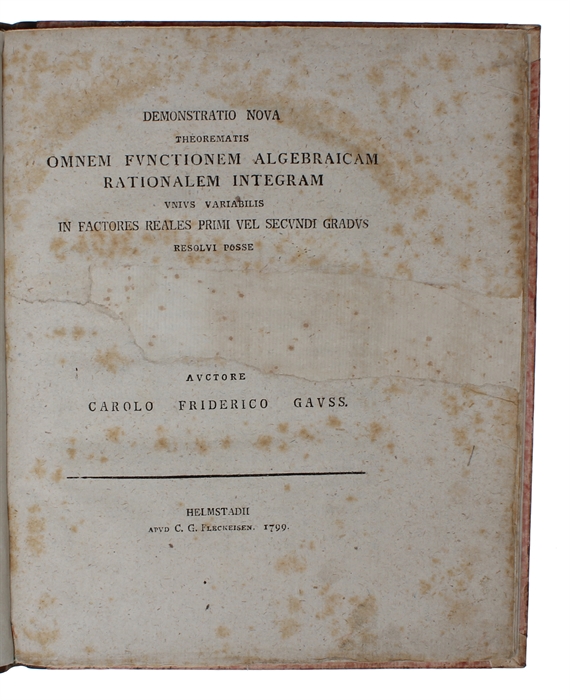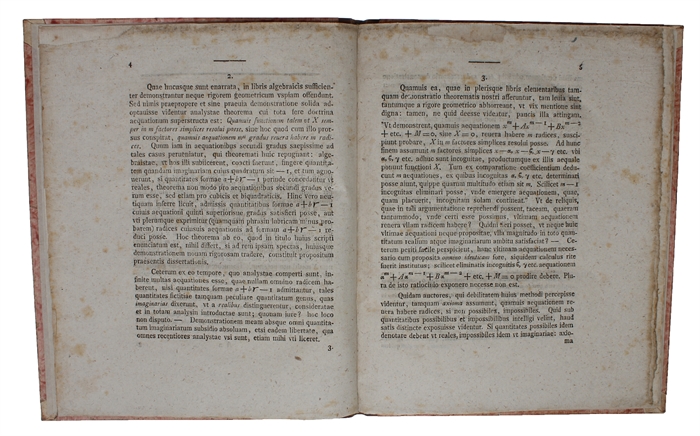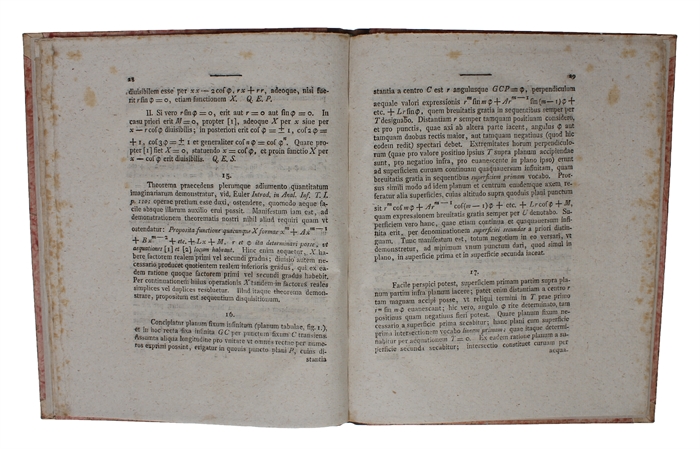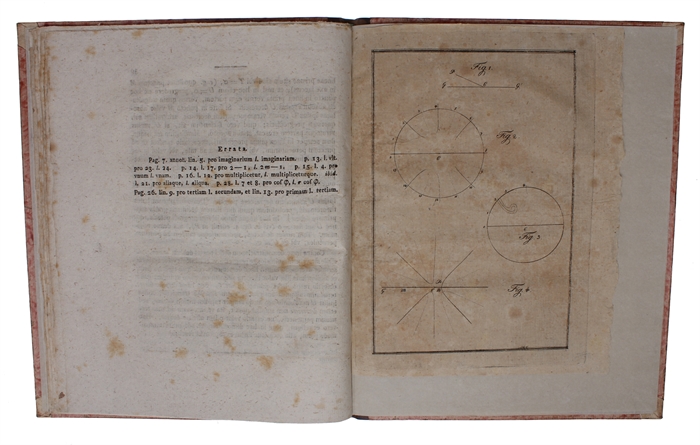GAUSS'S DOCTORAL THESIS - HIS FIRST GREAT WORK
GAUSS, CARL FRIEDRICH.
Demonstratio Nova Theorematis Omnem Functionem Algebraicam Rationalem Integram unius Variabilis in Factores Reales Primi vel Secundi Gradus resolvi posse (i.e. English: "A new proof of the theorem that every integral rational algebraic function of one variable can be resolved into real factors of the first or second degree"].
Helmstadt, C. G. Fleckeisen, 1799.
4to. Bound uncut in a very nice recent pastiche-binding in brown half calf with elaborately gilt spine and marbled paper covered boards. With repair to title-page, not affecting text. Small restorations to upper margin of leaf A2 and A3. Brownspotted throughout. 39, (1) pp. + engraved plate.
Rare first edition of Gauss's first book in which he proved the fundamental theorem of algebra which states that every non-constant single-variable polynomial with complex coefficients has at least one complex root. Gauss received his doctorate degree for this work, which is considered his first great work. It marks the beginning of an extraordinary ten years often referred to as his 'Triumphal Decade' with landmark achievements such as the publication of 'Disquisitiones Arithmeticae' and the calculation of the orbit of the newly discovered planet Ceres. On june 16, 1799, even before the thesis was published, Gauss was awarded the title Doctor Philosophiae after the usual requirements of an oral examination, particularly tedious to Gauss, was dropped. In a letter to Bolyai, Gauss's close friend, Gauss described his thesis: "Professor Pfaff, Gauss's formal research supervisor, shared with Gauss an interest in the foundations of geometry, but it is mere speculation that the two discussed this topic. Gauss's dissertation is about the fundamental theorem of algebra. The proof and discussion avoid the use of imaginary quantities through the work is analytic and geometric in nature; its underlying ideas are most suitably expressed in the complex domain. Like the law of quadratic reciprocity, the fundamental theorem of algebra was a recurring topic in Gauss's mathematical work - in fact, his last mathematical paper returned to it, this time explicitly using complex numbers." (Gauss, A Biographical Study, p. 41). "There is only one thing wrong with this landmark in Algebra. The first two words in the title would imply that Gauss had merely added a 'new' proof to others already known. He should have omitted "nova". His was the first proof . Some before him had published what they supposed were proofs of this theorem - usually called the fundamental theorem of algebra - but logical and mathematical rigor Gauss insisted upon a proof, and gave the first" (Bell, Men of Mathematics, p. 32) "Gauss ranks, together with Archimedes and Newton, as one of the greatest geniuses in the history of mathematics." (Printing & the Mind of Man). Dibner 114
"The title describes the main objective of the paper quite well though I devote to it only about a third of the space. The rest mainly contains history and criticisms of the works of other mathematicians (name d'Alembert, Bougainville, Euler, de Foncenex, Lagrange, and the authors of compendia - the latter will presumably not be too happy) about the subject, together with diverse remarks about the shallowness of contemporary mathematics"
Order-nr.: 59012





